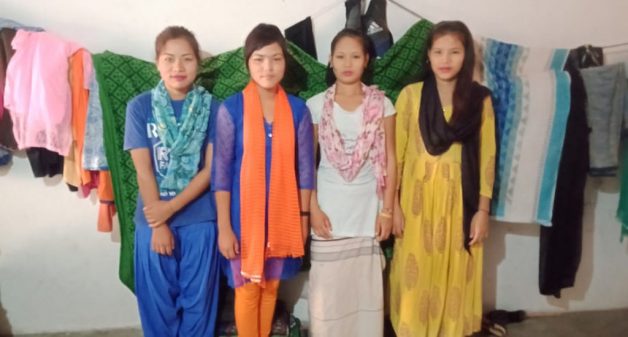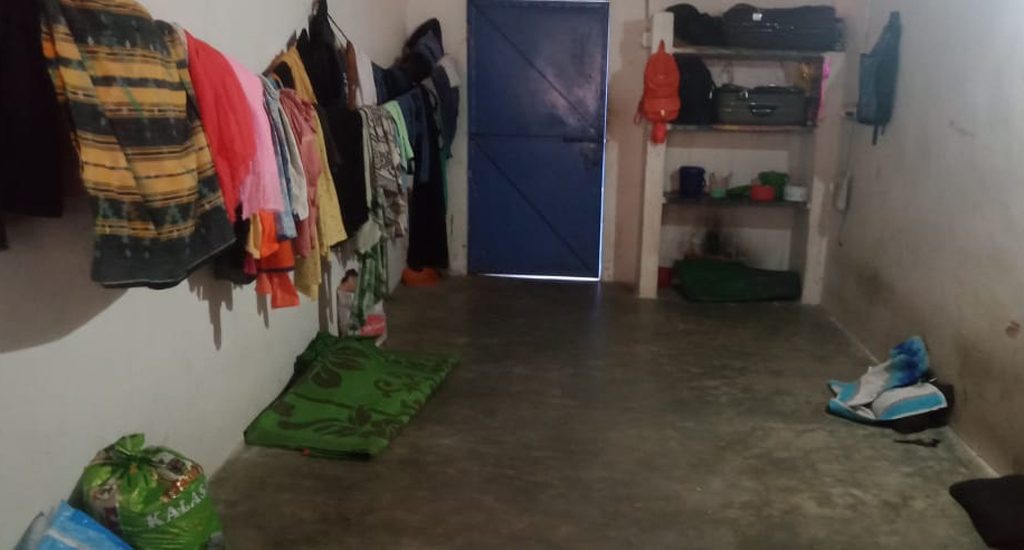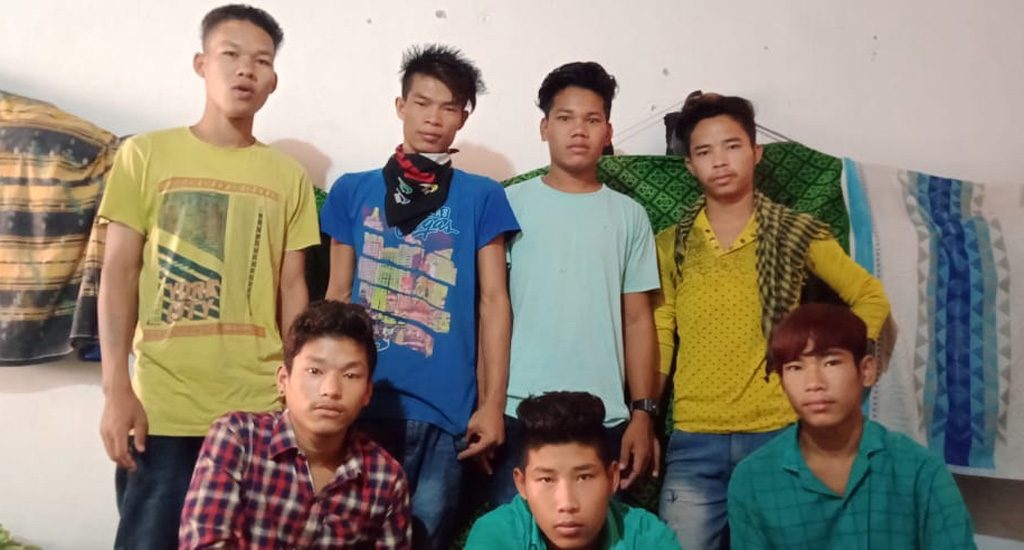
Stranded Chakmas in Tiruppur fear bleak prospects
With knitwear industry grinding to a halt, Chakma tribes who had migrated to Tamil Nadu from northeastern states to avoid poverty, find themselves in the same challenging situation

With knitwear industry grinding to a halt, Chakma tribes who had migrated to Tamil Nadu from northeastern states to avoid poverty, find themselves in the same challenging situation
Tiruppur, also called the Dollar Town of India, is a major textile hub in Tamil Nadu, contributing more than 90% to India’s cotton knitwear exports. The garment industry in Tiruppur employs nearly 4 lakh workers from across different regions of the country.
The COVID-19 pandemic and the subsequent lockdown have hit the Tiruppur garment industry hard. With most inputs coming from China and with no products being exported, business in Tiruppur is not as usual.
In India, the majority of the Chakma population is in Mizoram, Tripura and Arunachal Pradesh. As a drawback of being minorities in each of these states, they face a lot of economic and political hurdles.
Youth of the Chakma tribe from the north eastern states migrate to Tiruppur in significant numbers. They migrate to Tiruppur, which is more than 3,500 km away from their hometown, with the hope of a better livelihood. The sudden lockdown has put them in a very difficult situation.
Chakmas in Tiruppur
About a thousand Chakma migrant workers work in Tiruppur. Most of them are from Arunachal Pradesh and a few are from Mizoram. Lack of livelihood options in their home states make them travel to south India, to earn.
Roy Chakma, the sole bread winner of his family of four in Arunachal Pradesh, finds it extremely difficult to make ends meet as he did not get food ration supplied as part of lockdown relief. And he was yet to pay his rental share of Rs 2,000.
The migrants live in shared accommodations in what are known as compound colonies. The rent of one room ranges from Rs 2,000 to 2,500. The compounds are named as 50-compound and 30-compound, based on the number of rooms available in the colony, and have common toilets.

Often the migrants are siblings, friends and relatives, five members sharing one room. The others stay in nearby compounds. The companies that the migrants work for often bear hostel and room rents. However, after lockdown, the companies did not continue their support to the workers.
Sans essentials
The majority of the Chakma migrants are youth between 15 and 25 years and some of them bring their family along. Most of the younger migrants had reached Tiruppur just a few months before lockdown. Some of them had recently left school, to work in Tiruppur.
A group of 12 Chakmas working in an exports unit stay in a remote area and have to walk about 6 km to reach the nearest market. “Local villagers thought we were Chinese and chased us away. We fear stepping out alone,” Vijoy Chakma, one of the migrants told VillageSquare.in. “The language barrier is a huge problem in seeking help.”
Most of them do not have formal work contracts. They are confined to their accommodation, without cash in hand for buying essentials. Being from rather poor background, families back home cannot provide for them. In fact, most of their families count on the remittance from the migrants’ wages.
Challenging circumstances
If the lockdown is to further continue they will be unable to pay for rent or food. Many of these migrant workers are desperate to return home as the lockdown has left them jobless and drained of whatever little savings they had.
In Arunachal Pradesh, where the majority of Tiruppur’s migrant workers hail from, the Chakma community continues to suffer hardship. Given their minority status, the prevailing circumstances back in their home states makes their situation even more complex and vulnerable.
Hardship for women
Mala Chakma, a 30-year-old single mother, is the sole earning member of her family that includes her senior citizen mother and her sister. With no means of income in her native place, she left her 5-year-old daughter behind, to work in Tiruppur.
Having lost her father several years ago, she found work in Tiruppur to sustain her family. She has been working as a helper, and with the weekly wages she earned by working overtime shifts, she has been taking care of her family in Arunachal Pradesh.
Rita Chakma (20) from Arunachal Pradesh’s Diyun Circle works in one of Tiruppur’s garment units as a packer. Due to her family’s financial difficulties, she dropped out of school and started working, so as to support her aged parents. The lockdown meant she had nobody to bank on for support.
Inadequate relief
The relief efforts in Tamil Nadu have been good. Tiruppur town also has a relief camp. However, it is inadequate and given the strict lockdown measures, getting out of their houses to reach the town is nearly impossible for these migrants.

When contacted over phone, to facilitate transfer of funds through India Fellow COVID-19 Cash Relief, the migrants were annoyed. Because a month ago, private entities had asked for the same details, but the migrants were yet to receive any relief money.
India Fellow COVID-19 Cash Relief initiative has helped 200 of the most vulnerable, by making cash transfer. However, administrative support is also needed. Waiting for weeks with inadequate support, the Chakma youth fear bleak prospects.
Names have been changed to protect privacy
Usma Chakma advocates the rights of indigenous tribes of the northeast. She is based at Delhi and an India Fellow alumna. Anupama Pain works with India Fellow program. Views are personal.